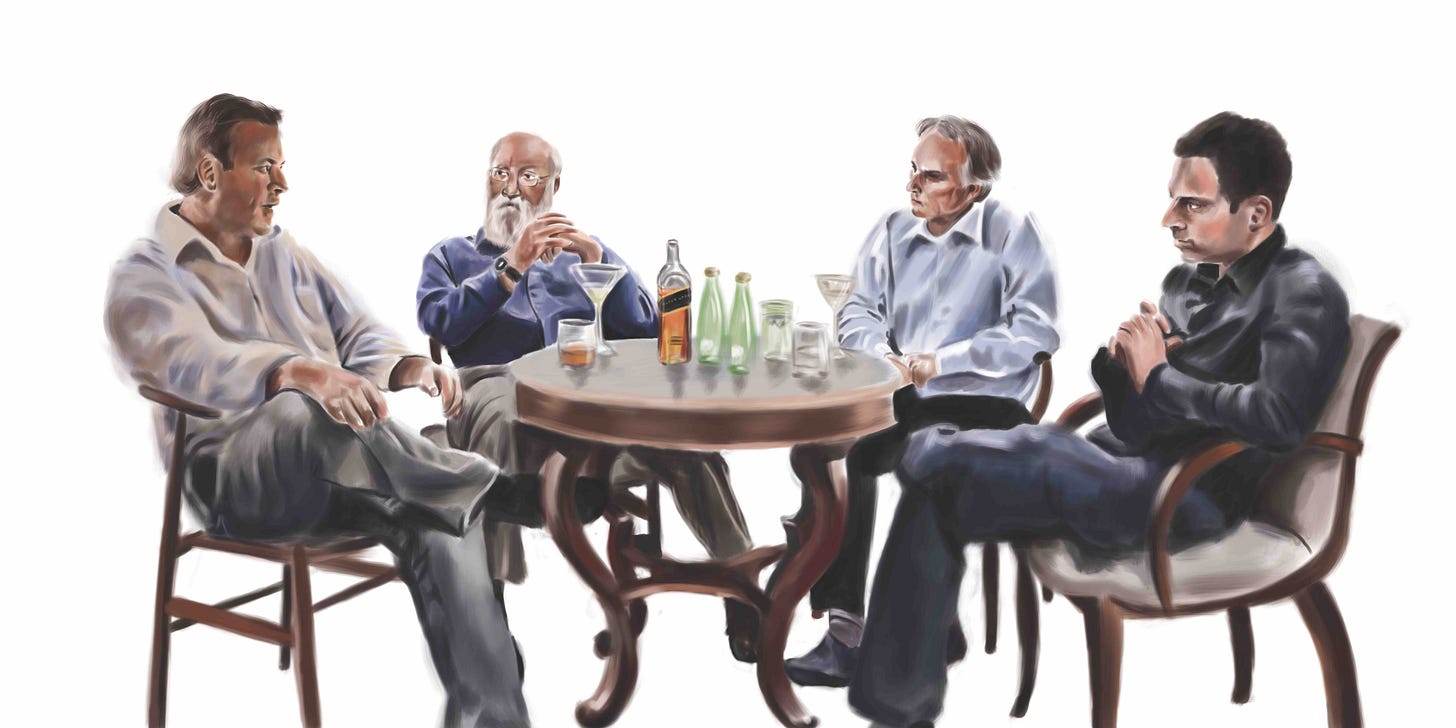Among the many topics the ‘four horsemen’ discussed in 2007 was how religion and science compared in respect of humility and hubris. Religion, for its part, stands accused of conspicuous overconfidence and sensational lack of humility. The expanding universe, the laws of physics, the fine-tuned physical constants, the laws of chemistry, the slow grind of evolution’s mills – all were set in motion so that, in the 14-billion-year fullness of time, we should come into existence. Even the constantly reiterated insistence that we are miserable offenders, born in sin, is a kind of inverted arrogance: such vanity, to presume that our moral conduct has some sort of cosmic significance, as though the Creator of the Universe wouldn’t have better things to do than tot up our black marks and our brownie points. The universe is all concerned with me. Is that not the arrogance that passeth all understanding?
Carl Sagan, in Pale Blue Dot, makes the exculpatory point that our distant ancestors could scarcely escape such cosmic narcissism. With no roof over their heads and no artificial light, they nightly watched the stars wheeling overhead. And what was at the centre of the wheel? The exact location of the observer, of course. No wonder they thought the universe was ‘all about me’. In the other sense of ‘about’, it did indeed revolve ‘about me’. ‘I’ was the epicentre of the cosmos. But that excuse, if it is one, evaporated with Copernicus and Galileo.
Keep reading with a 7-day free trial
Subscribe to The Poetry of Reality with Richard Dawkins to keep reading this post and get 7 days of free access to the full post archives.


